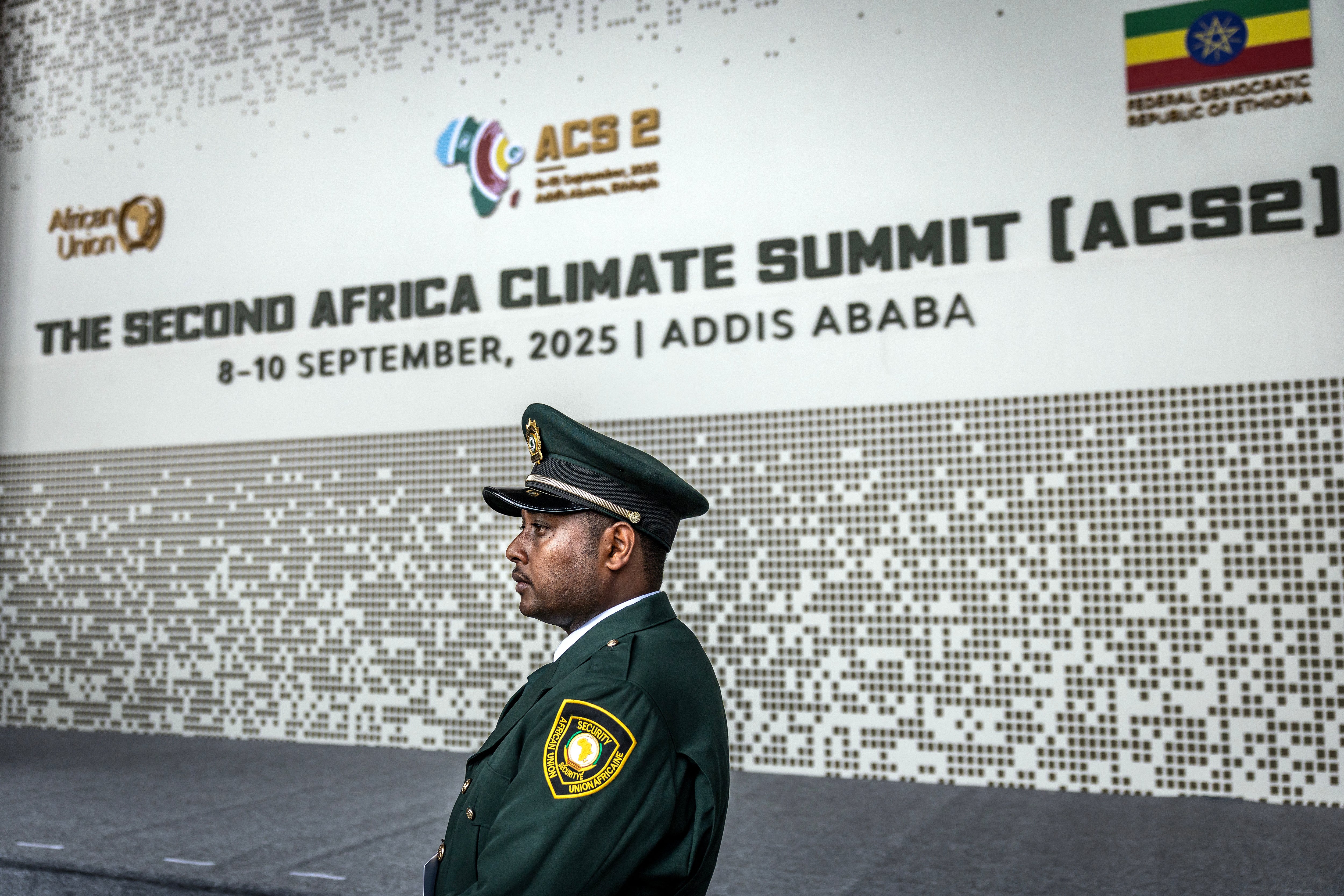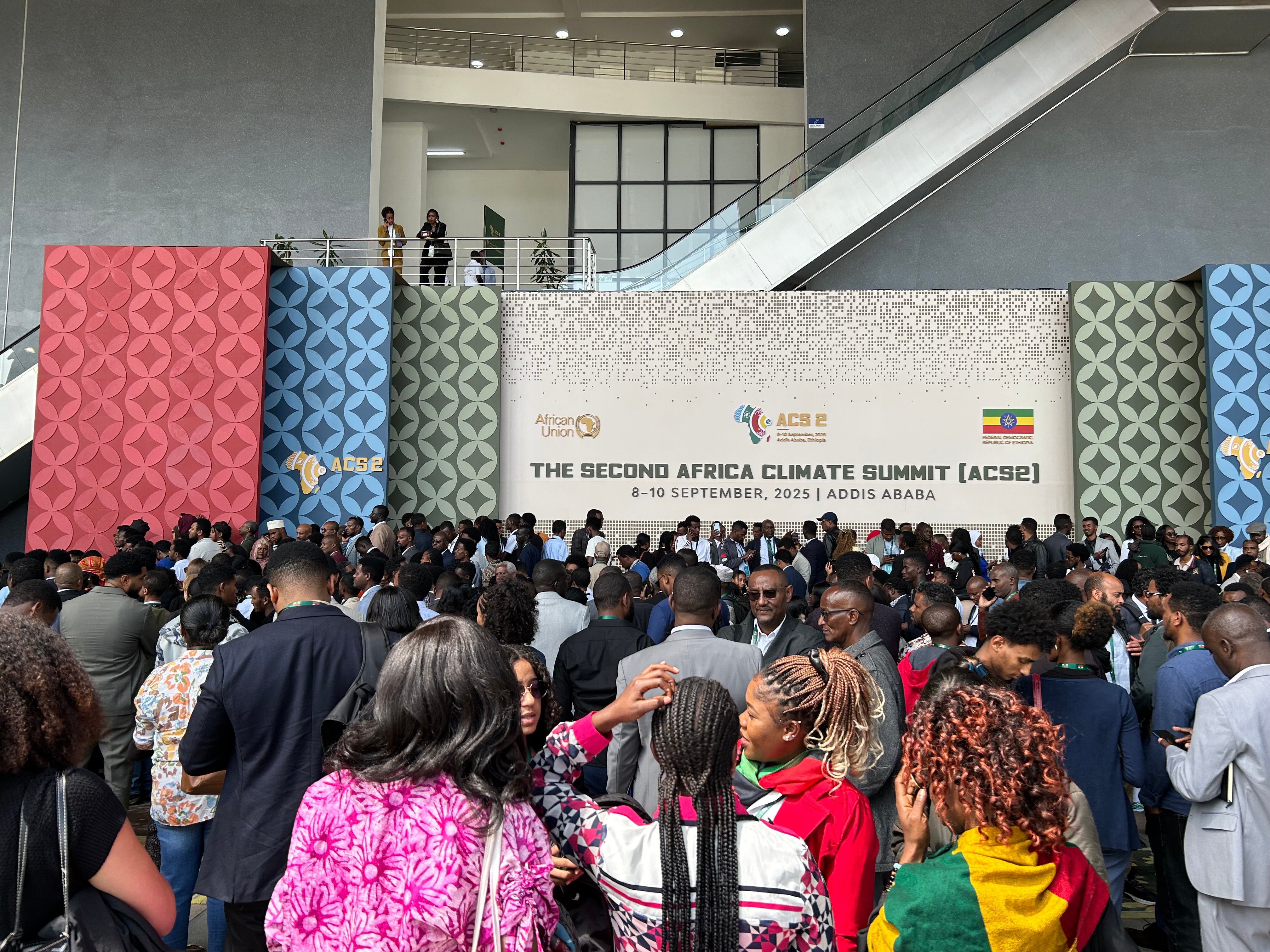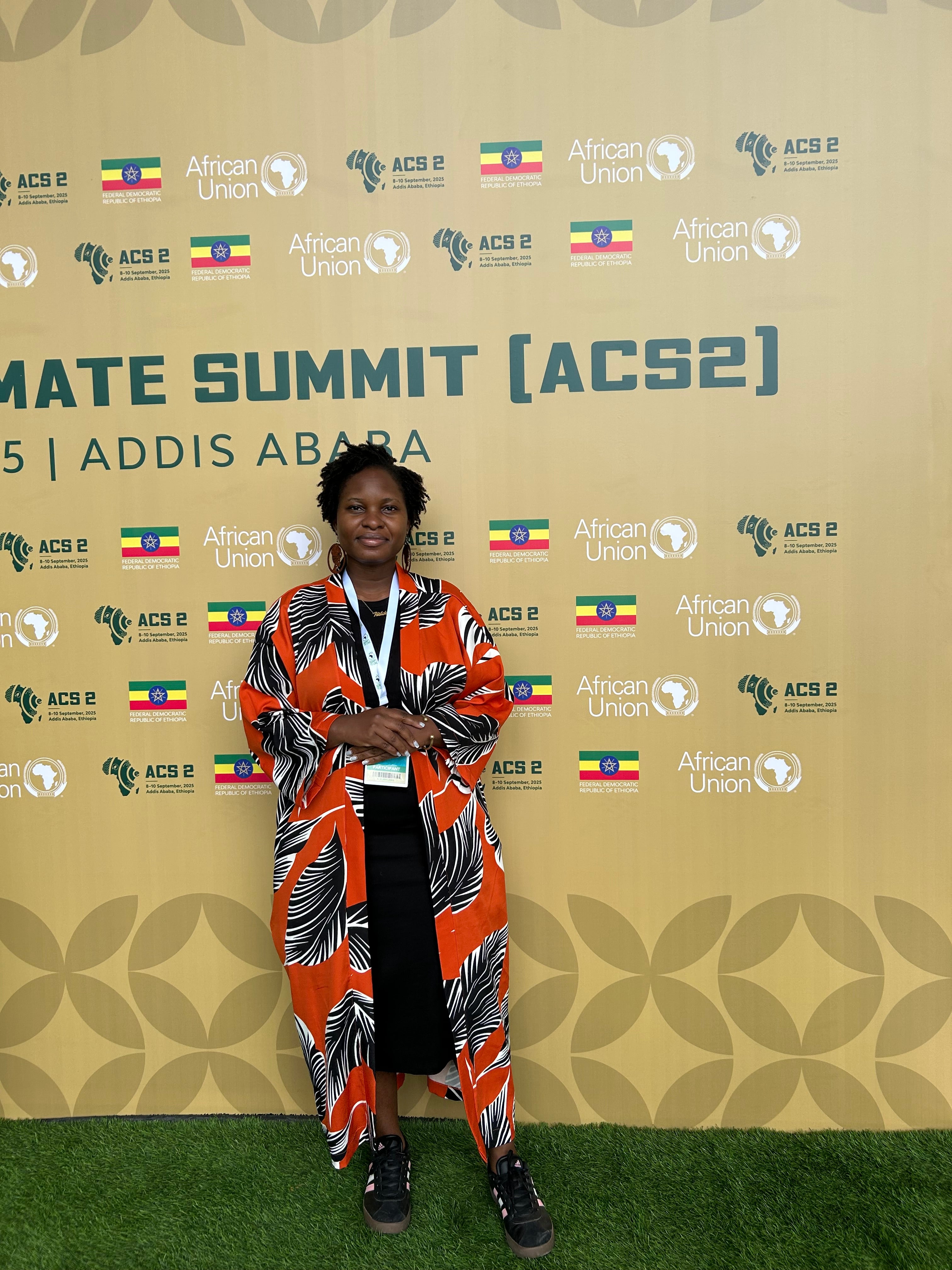Some 25,000 climate have descended on Addis Ababa, Ethiopia, for the second African Climate Summit (ACS2) – in the face of Donald Trump’s hostile stance towards both climate science and aid funding.
The first ACS, which took place in Nairobi, Kenya in 2023, saw more than $20 billion mobilised in investment, and 54 African governments unite around the seminal “Nairobi Declaration”: The first time countries had all reached a common position on climate, which in turn has amplified the continent’s voice at the annual UN-led COP climate conferences.

But the world of 2025 is a very different place. While in Nairobi, US climate envoy John Kerry was a keynote speaker, in Addis, discussions are set against a backdrop of President Trump threatening trade tariffs against countries that continue to push the climate agenda.
The high-profile list of dignitaries suggests that African nations are choosing not to be cowed by such bullying. The leaders of Kenya, Angola, Djibouti, Ethiopia, and Somalia have all attended, as did the chair of the African Union Commission, and ministerial representation from other countries across the world.

Speeches and conversations from day one of the summit suggest that while economic rejection from the world’s richest country is not desirable, the realities of the climate crisis represent a far more pressing problem.
“We are among the world’s most climate-vulnerable nations,” said Hassan Sheikh Mohammed, Prime Minister of Somalia, at the opening plenary. He described how climate change is already resulting in “widespread insecurity and loss of livelihoods… further compounding our already challenging social, economic and security landscape.”
Such feelings were echoed by conference attendees interviewed inside the Addis International Convention Center.
“The flooding we have experienced in our country recently is something unbelievable,” said Wilson Jonn Ugwu, a journalist from Nigeria. Hilda Flavia Nakabuye, a Ugandan climate activist and founder of Fridays for Future Uganda, added: “We are facing climate impacts first hand every day. We know what it is to be hit by a flood, or for your garden to dry out because of drought. You cannot keep quiet when you know what these impacts are like.”
The comments come as a new survey published by Water Aid on Monday found that 90 per cent of adults from South Africa, Ghana, Kenya and Nigeria said that they were worried about how climate change will affect their future, with 49 per cent saying they have already been impacted by crop failure, and 32 per cent saying they have already seen their health worsen due to the imapact of the climate crisis.
Few high profile delegates have so far been willing to publicly criticise the optics of Trump pulling the US, which is the world’s biggest historic emitter of greenhouse gases, out of the landmark Paris Agreement of 2016, which aimed to limit global warming. But African nations – which collectively contribute to just four per cent of global emissions – are continuing to push the climate agenda. However, Nakabuye from Uganda did not mince her words.

“If they call themselves a super power, then they should act like one and lead the transition,” she said. “They should stand up to their responsibility and pay up for the damage caused in our communities.”
President Ruto of Kenya also offered some veiled criticisms of shifting geopolitics in his speech at the opening plenary.
“Across the continent Africa, entrepreneurs and communities are innovating from the ground up, but where progress has been made, the world around us is changing fast,” he said, critiquing what he described as: “the temptation to retreat into narrow self interest… and short-term gain.”
While Trump might be casting a long shadow over proceedings, the EU was represented by its executive vice-president Teresa Ribera, who reminded delegates that the bloc remains the biggest investor in Africa, and told attendees that Europe will continue to “stand by you”.

“At a time when multilateralism, the rule of law and the very principles of human dignity, peace and cooperation, are being questioned by some, we need to stay firm to defend multilateral and regional cooperation,” she said. “I’m here to say loud and clear: We Europeans we will not give up”
For his part, Dr Ahmed Ali, prime minister of Ethiopia, presented a message of African strength and independence in his opening address.
“Africa did not cause this crisis, yet Africa can lead in solving it,” he said. “We have the solutions to restore, to produce clean we now we will know what is to be done. Now is the time.”
But on a rainy day in Addis Ababa, where many attendees complained of queuing for several hours to be able to access the conference, there were also signs of disquiet behind the apparently unified PR front.
Ali’s speech also referenced the Grand Ethiopian Renaissance Dam: a giant hydroelectric plant set to be officially inaugurated on Tuesday, which will provide electricity to almost half of the country’s 120 million people. The project is hugely controversial in Sudan and Egypt, who rely on the river for irrigation and power. The leaders of the two leaders were notably absent among the speakers at the opening plenary.
Another speaker at the opening, Selwin Hart, special advisor to the UN on climate, praised African nations for their resolve, but also called on governments to present their “new national climate plans” – which are due every five years under the Paris Agreement – by the deadline that the UN has set of September 24.
So far, just five African nations have submitted such plans.
*This article was produced as part of The Independent’s Rethinking Global Aid project
Discussion about this post